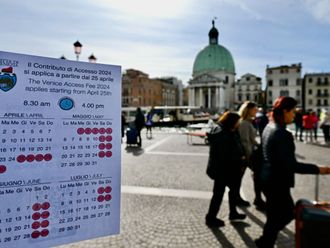MOSCOW: Russia’s lower house of parliament gave preliminary approval on Wednesday to a law giving Moscow the power to designate foreign media operating in Russia as “foreign agents” required to disclose where they get their funding and how they spend it.
The legislation is part of the fallout from a row between Moscow and Washington over allegations that the Kremlin interfered in the US presidential election last year in favour of Donald Trump.
US intelligence officials accuse the Kremlin of using Russian media organisations it finances to influence US.
voters, and this week Washington required Russian state broadcaster RT to register a US-based affiliate company as a “foreign agent”.
The Kremlin denies meddling in the election and has said the restrictions on Russian broadcasters in the United States are an attack on free speech. It has vowed to retaliate by imposing restrictions on some foreign media operating in Russia.
In the 450-seat State Duma, the lower house of parliament, 409 lawmakers voted on Wednesday to approve the legislation on second reading, with none against, according to TASS news agency. A third reading is required before the law passes to the upper house for approval.
The draft legislation states that Russian authorities can designate foreign media as “foreign agents” but it does not say on what basis officials will make that determination, or to which media the designation will apply.
According to the draft law, a media organisation classified as a “foreign agent” will be subject to the same requirements that are applied to foreign-funded non-governmental organisations under a 2012 law.
That law, heavily criticised by Western governments, was an attempt by Moscow to insulate itself from a wave of popular revolutions in eastern Europe and the Middle East. Moscow said they were fomented by Western governments using civil society groups as proxies.
Under the 2012 law, “foreign agents” have to apply for inclusion in a government register, they have to submit regular reports on their sources of funding, their objectives, how they spend their money, and who their managers are.
They can also be subject to spot checks by the authorities to make sure they comply with the rules. Any information they publish has to include a mention that the source of the information is a “foreign agent,” according to the 2012 law.
For the draft legislation to pass into law, it must be approved by Russian President Vladimir Putin.
He has been fiercely critical of US measures towards Russian media, but he has not given wholehearted support to the draft legislation, saying at the weekend it “might be a little too harsh.”
— Reuters












